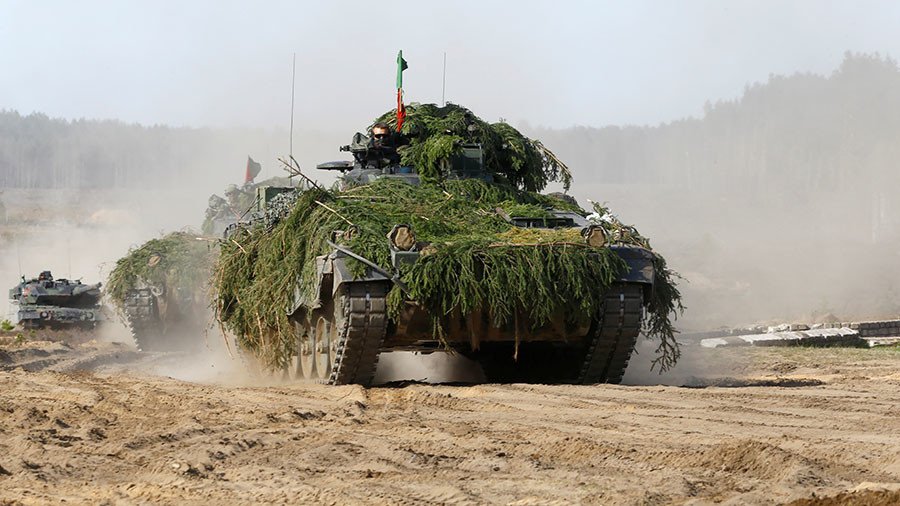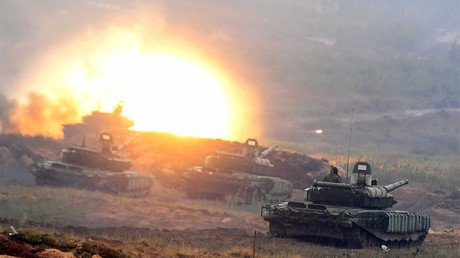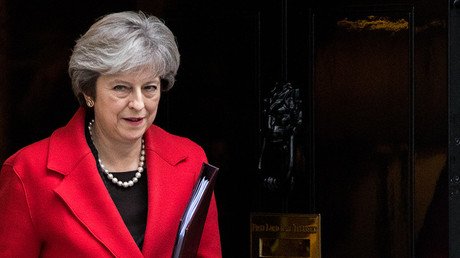State Department claims that Russia is stronger than EU is blatant disinformation

Across the west, the “Russian-aggression” theme is being promoted by vested interests to scare politicians and the public into agreeing to increases in defense spending. But a US State Department claim that Russia’s military strength eclipses that of European Union states is especially ludicrous.
“The threat to [the West’s] collective security posed by Russia is clear, and we on both sides of the Atlantic cannot ignore it,” Brian Hook said. The official is a senior adviser to US Secretary of State Rex Tillerson, who was addressing the Center for Strategic & International Studies' Transatlantic Forum.
According to RT News, “He went on to liken the level of the threat the West saw from the Soviet Union with the one it sees from modern Russia, claiming that ‘as in the past, the threat runs from the Baltic to the Black Sea,’” before suggesting that the “military arrangement of forces in Europe favors Russia.”
This is absolute balderdash, for reasons I will outline.
Different Range
For starters, the land area of the Russian Federation is almost four times greater than the size of the European Union. However, it’s much less densely populated, with the EU boasting more than 511 million citizens and Russia only 146 million.
Due to Russia’s vast size and geographical position, it shares land borders with 16 countries, by its own definition, and maritime frontiers divide it from another pair. And co-existence ranges from the relaxed (Finland and Azerbaijan) to the friendly (China and Belarus) to the potentially unstable (North Korea and Georgia) to the downright hostile (Ukraine and the United States).
As a result, Moscow needs a large army, spread across its giant landmass, purely to act as a defensive deterrent, before it can even think of any offensive operations. Taking this into account, the Russian armed forces’ 831,000 active personnel doesn’t seem excessive. Especially when you consider how smaller nations like China (2.1 million) and the US (1.3 million) can call on considerably larger numbers.
But the issue here is Europe, and even if Russia could divert all its troops (assuming the Asian borders will police themselves) to a conflict with the EU states, how would the numbers measure up?
Well, France has 202,000 full-time soldiers, Germany 176,000, Italy 174,000, the UK 152,000, and Greece has 142,000. So, we are only five countries in and Russia’s manpower has already been surpassed. And the other 23 EU members include Spain (123,000) and Poland (99,000). Not to mention how Ukraine (204,000) would surely ally with the western countries, which currently bankroll its shattered economy.
So as you can see, Russia is hugely outnumbered. Even if Vladimir Putin issued a presidential decree this week, which set the desired number of Russian troops going forward at slightly over one million.
Adding It Up
Now, let's check the tale of the tape when it comes to finances.
In 2016, Russia allocated $69 billion to defense, which was less than half the combined spend of France ($55 billion), Britain ($48 billion) and Germany ($41 billion). Plus, many other EU countries also spend big in this area: Italy pledged $27 billion, Spain $14 billion and Poland close to $10 billion. Of course, all of these numbers paled into insignificance compared to the top dog, the US, which splashed out $611 billion last year.
And, what’s more, the Russian government announced massive cuts to its defense budget earlier this year. A 25-percent reduction, in fact, as the Kremlin looks to divert funds to social spending, ahead of the 2018 Russian presidential election.
Lastly, overall economic clout is also worth mentioning. And here I am going to be kind to Hook by using GDP measured by Purchasing Power Parity. Because, given the current weak ruble exchange rate versus the dollar, Russia’s nominal GDP is far lower, when priced in the US currency.
Russia’s economy is valued at almost precisely $4 trillion. Which makes it smaller than Germany ($4.1 trillion) but significantly larger than Britain ($2.8 trillion), France (also $2.8 trillion), Italy ($2.3 trillion) and Spain ($1.7 trillion). Nevertheless, the overall European Union economy is worth $20.8 trillion, which is over five times more than Russia’s total.
So, essentially Russia has something akin to the defense budget of Saudi Arabia ($63 billion), troop numbers somewhere between those of Pakistan (653,000) and North Korea (1,190,000), and the economic heft of Germany.
Thus, it is not stronger than the European Union, by any measure, and the State Department’s Hook is spreading clear disinformation. All to serve an agenda that has nothing to do with Europe’s security.
The statements, views and opinions expressed in this column are solely those of the author and do not necessarily represent those of RT.















